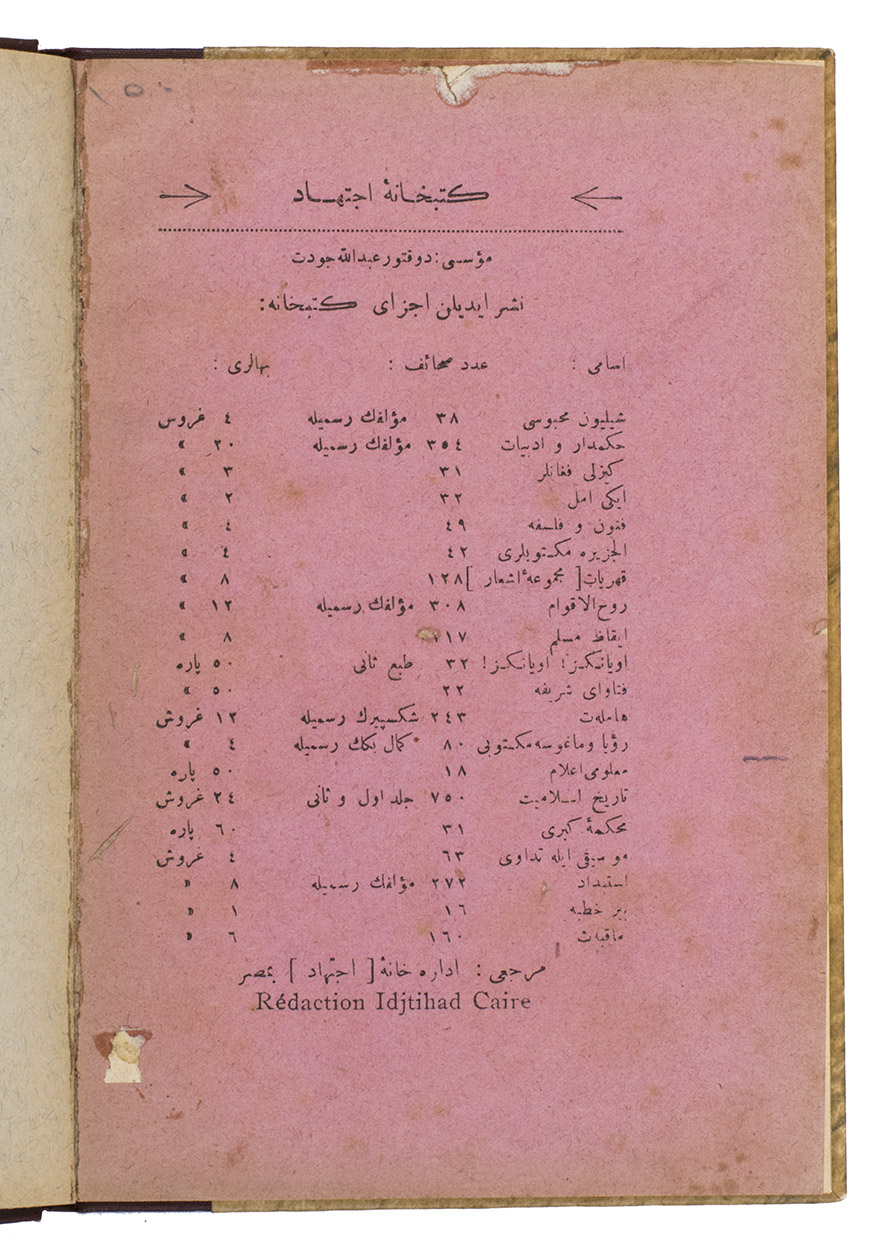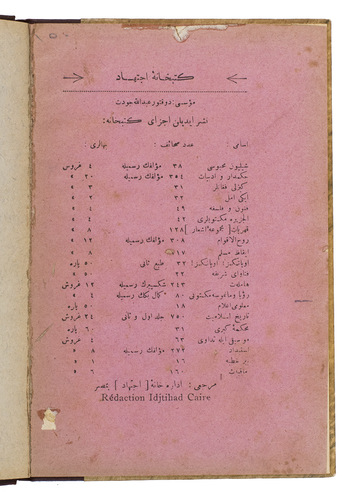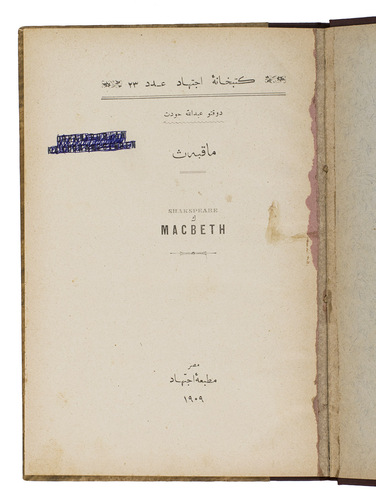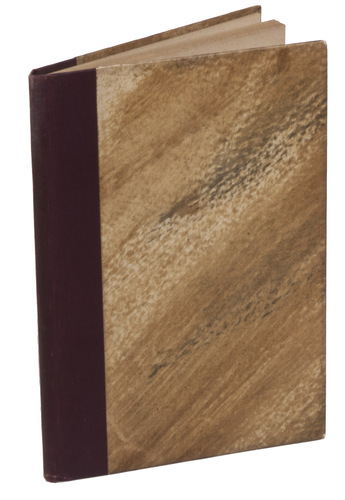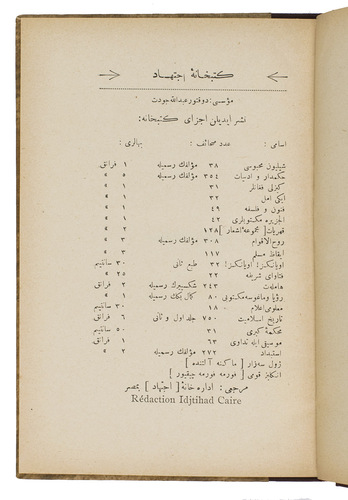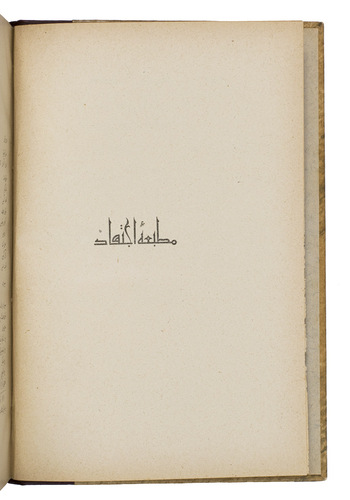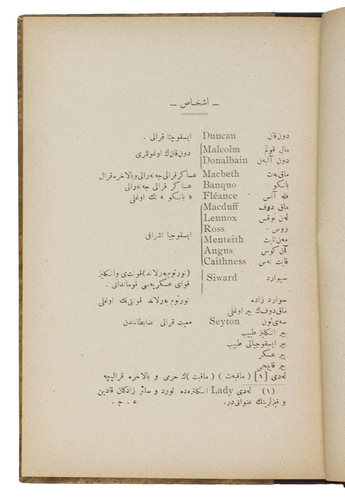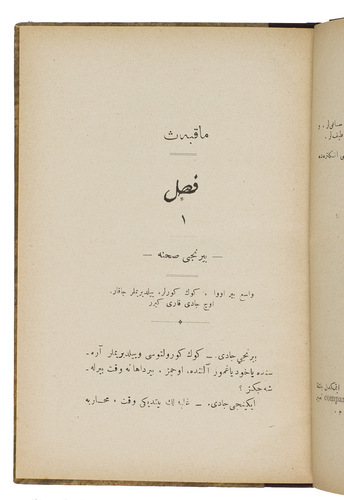SHAKESPEARE, William and Abdullah CEVDET (translator).
[Makbet = Macbeth in Ottoman Turkish].
Cairo, Egypt, Kütübhane-i Içtihad, 1909. 8vo. With practically all text set in Arabic type. Half maroon cloth and brown decorated paper sides. [5], 153, [2] pp.
€ 6,500
This extremely rare work marks the inaugural translation of Macbeth into the Ottoman language, also known as Osmanli. The translator behind this milestone was Abdullah Cevdet (1869 - 1932), an Ottoman medical practitioner with Kurdish roots. The work - printed in Cairo - is extremely rare, with only two other known copies worldwide (Istanbul, Boπaziçi University Library and Los Angeles, UCLA Library). This translation reflected Cevdet's stance against Hamidian despotism and his fervent advocacy for liberty. He was renowned for his progressive ideas regarding women's liberation and the modernisation of Islam. Cevdet faced multiple trials for his beliefs. In 1908, he embarked on the translation of Shakespeare's Julius Caesar and Hamlet, followed by Macbeth the following year. These works were prohibited by the Ottoman government, primarily due to their portrayal of rulers meeting moral defeat. Cevdet's Shakespeare translations were seen as threats by political authorities since they revolved around the assassination of monarchs and heads of state. From Cevdet's perspective, Macbeth was renowned as a drama centred on the "ambition for status" (hirs-i cah). Consequently, these works found publication in Cairo, far from the censorship reach of Istanbul.
Ottoman Turkish, or Osmanli, stands as a unique linguistic amalgamation. It served as the language of choice for the political, administrative, and cultural elites of the Ottoman Empire, blending three entirely unrelated languages: Turkish (Turkic), Arabic (Semitic), and Persian (Indo-Iranian). Not only did the vocabulary reflect this fusion, but grammatical features such as inflections, prefixes, and suffixes from these languages were combined with the root words. This linguistic complexity eventually prompted language reforms in the 1930s under Atatürk, leading to the adoption of the Latin alphabet for modern Turkish.
Abdullah Cevdet (1869-1932) was born in the Ottoman Empire to Kurdish heritage, was not only an intellectual and a physician but also played a significant role in the Committee of Union and Progress (CUP). In 1908, he joined the Democratic Party, which later merged with the Freedom and Accord Party in 1911. Cevdet, initially a devout Muslim, was influenced by Western materialistic philosophies and came to oppose organized religion. Nevertheless, he believed that Islamic principles should be preserved in Islamic society despite the obsolescence of the Muslim God in the modern era. He published the periodical "Ictihat" from 1904 to 1932, using its articles to disseminate his modernist ideas. Due to his political activities, he faced arrests and expulsions from his homeland on multiple occasions, residing in European cities including Vienna, Geneva, and Paris. His poetry was associated with the Symbolist movement in France, earning him accolades from prominent French authors like Gustave Kahn.
With a previous owner's inscription on the first free end leaf and the title-page, both crossed out, the original publisher's pink wrappers were bound in, but the front wrapper is lacking and the back wrapper is detached. Slightly browned throughout, otherwise in very good condition. Özege 12009; WorldCat 949612474 (2 copies).
Related Subjects:
